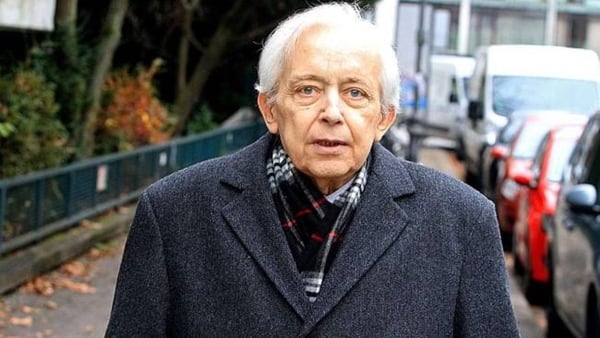Law & Politics
Ronald Lauder Warns of Lawsuit ‘Avalanche’ Over Gurlitt Collection
Is the Kunstmuseum Bern in for a nightmare if it takes the works?
Is the Kunstmuseum Bern in for a nightmare if it takes the works?
Alexander Forbes

Jewish World Congress president Ronald Lauder has threatened that the Kunstmuseum Bern would be opening itself up to an “avalanche” of lawsuits if the institution accepts the collection of approximately 1,300 artworks bequeathed to it by the late Cornelius Gurlitt in an article published by German weekly Der Spiegel. The museum is currently in the process of deciding whether or not to accept the collection, which includes works by Henri Matisse, Max Liebermann, Otto Dix, and Marc Chagall, among others.
Exactly a year ago, on November 3, 2013, the world learned of the monumental trove of Nazi looted art found by tax authorities in Cornelius Gurlitt’s Munich apartment. The hoard was discovered by Bavarian authorities in 2012, following suspicions that Gurlitt was evading taxes. Nearly 600 works from the collection are suspected to be of questionable provenance, possibly Nazi loot. Those works have been placed on the central register for artworks suspected of having been stolen, Lost Art. Gurlitt died on May 6th of this year, leaving the entire collection to the Swiss museum (see “Gurlitt Bequeathed Collection to Museum of Fine Arts Bern“).
Speaking to Der Spiegel, Lauder warns that if the Kunstmuseum Bern accepts the collection it will “open a Pandora’s box” of legal claims against it by German museums and Jewish heirs of paintings within the collection. “The people in Bern will harm themselves and their country if they take these paintings before their provenance is cleared up. They would become a museum of stolen art,” continues Lauder, according to Reuters.

Cornelius Gurlitt, who died at 81 in May
Photo: Markus Hannich.
The Kunstmuseum Bern announced that it is in ongoing discussions with the German government regarding the possible acceptance of the collection. That process was confirmed by German culture minister Monika Grütters in Der Spiegel. The museum will decide on whether or not to accept the collection on November 26th, following a meeting of its board.
The museum denies previous reports that indicated they had already decided to accept the collection (see “Kunstmuseum Bern Will Accept Gurlitt Art Trove“), explaining that the decision was entirely that of the board. However, the terms of the possible agreement, which were leaked by the Sonntagszeitung would seem to hedge against Lauder’s threats.
According to that unconfirmed proposal, the Kunstmuseum would not take possession of any work against which there is currently a restitution claim or about which there is any suspicion of Nazi provenance. It would use permanent loans to return all works that could be tied to other museums or institutions. And it would keep the entire collection in Germany in case further restitution claims arise down the line.
As the Neue Zürcher Zeitung reported, there is reason to believe that a decision by the Kunstmuseum Bern to accept the inheritance would in fact be to the benefit of all involved. If it does not accept the works, they would likely go to Gurlitt’s distant relatives. The paper explains that such individuals would not be bound by the Washington Principles of 1998. The accord, which stipulates that institutions found to be in possession of Nazi loot find a fair and equitable solution to return the looted works to their rightful heirs. While Gurlitt, in his last days, expressed a desire that all of the artworks of questionable provenance be returned to their Jewish heirs (see “Gurlitt Gives German Task Force One Year to Research Provenance of Suspected Nazi Loot“), his relatives would also not be bound by this final wish.